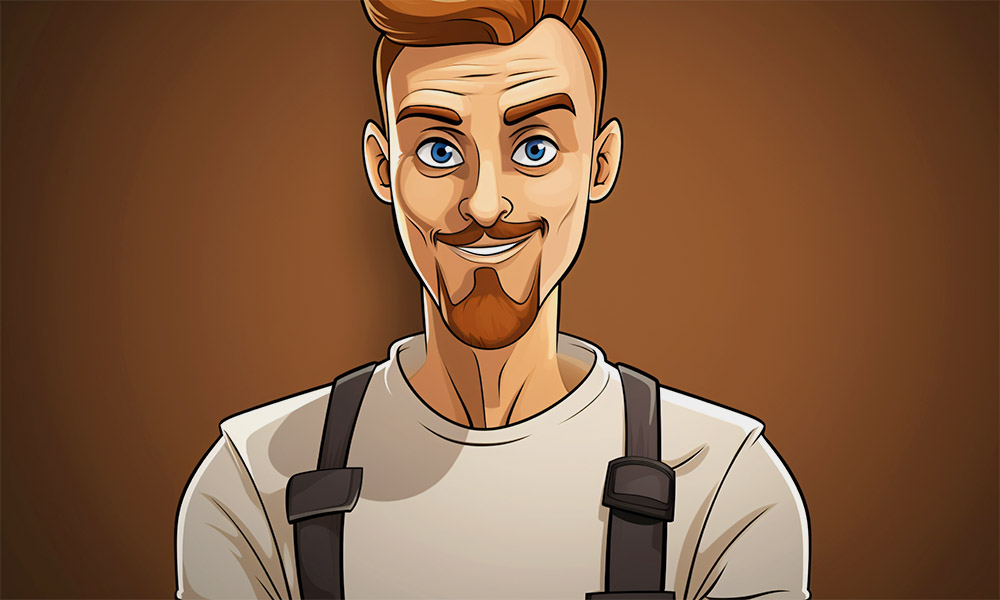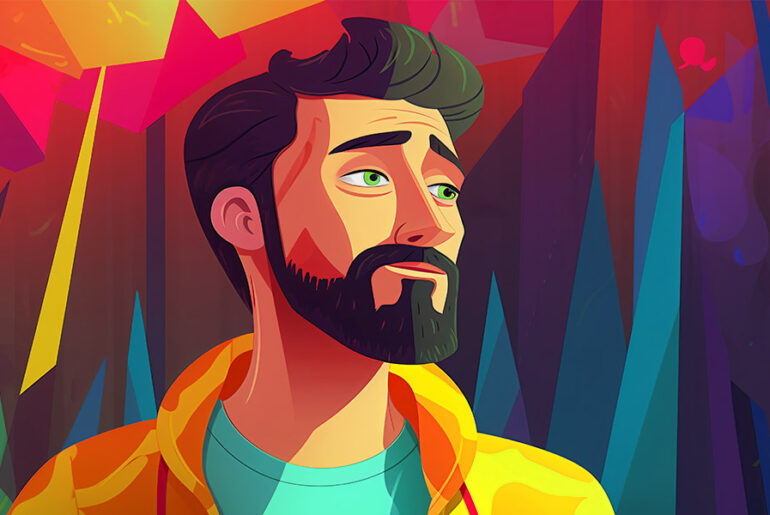Digital art has undergone countless transformations over the decades, but nothing quite compares to the explosive emergence of caricatronchi. This fascinating art form blends traditional caricature techniques with cutting-edge artificial intelligence, creating a completely new visual language that speaks to our modern digital existence.
The term “caricatronchi” combines the Italian word “tronchi,” meaning fragments, with the familiar concept of caricature. Artists worldwide have embraced this style as a way to express the fractured, multi-layered nature of contemporary identity in an increasingly digital world.
What Makes Caricatronchi Unique
Visual Characteristics That Stand Out
Caricatronchi artwork immediately catches the eye through its distinctive visual elements. Unlike traditional portraits, these pieces feature dramatically exaggerated facial features—oversized eyes that seem to pierce through the screen, elongated necks that defy anatomy, and lips that appear almost sculptural in their proportions.
The fragmentation aspect sets caricatronchi apart from other digital art styles. Faces appear broken into geometric shards, layered with translucent masks, or split across multiple planes of reality. These fragments don’t represent destruction but rather the complex layers of human personality that social media often flattens into simple profiles.
Color Palettes and Textures
The color choices in caricatronchi work are deliberately bold and unconventional. Electric neon pinks clash beautifully with soft pastels, while glitch-inspired textures add digital static that mirrors our screen-saturated lives. These aren’t accidental aesthetic choices—they reflect the overwhelming sensory experience of navigating modern digital spaces.
Many artists incorporate metallic sheens, holographic effects, and pixelated distortions that reference both retro computing aesthetics and futuristic visions. The result creates artwork that feels simultaneously nostalgic and forward-looking, much like our relationship with technology itself.
The Technology Behind the Movement
AI Tools Driving Innovation
Artificial intelligence has become the backbone of caricatronchi creation. Popular platforms like Midjourney, DALL-E, and Stable Diffusion serve as starting points for many artists, who then refine and personalize the generated images using traditional digital art software.
The most successful caricatronchi pieces typically undergo multiple stages of creation. Artists begin with AI-generated base images, then layer additional elements using Photoshop, Procreate, or other digital art tools. This hybrid approach combines machine learning capabilities with human creativity and emotional intelligence.
Accessibility and Democratization
One of the most revolutionary aspects of caricatronchi is how it has democratized portrait creation. Previously, creating compelling caricature art required years of traditional drawing practice. Now, anyone with a smartphone and basic editing skills can produce striking caricatronchi pieces.
This accessibility has led to an explosion of creativity from unexpected sources. Teenagers create self-portraits that capture their emotional complexity, while adults use the style to explore aspects of their identity that conventional photography cannot express.
Cultural Impact and Social Media Integration
Beyond Traditional Social Media Avatars
Standard profile pictures have begun feeling inadequate for expressing the complexity of online identity. Caricatronchi fills this gap by offering avatars that can simultaneously be recognizable and abstract, personal yet universal.

Platform algorithms have responded positively to caricatronchi content, with these vibrant, unusual images often receiving higher engagement rates than conventional photography. The style’s inherent shareability has contributed significantly to its viral spread across Instagram, TikTok, and Twitter.
Mental Health and Self-Expression
Many users report that creating caricatronchi self-portraits provides therapeutic benefits. The process of exaggerating and fragmenting facial features allows for emotional expression that feels safer and more controlled than direct vulnerability.
Therapists and art therapy practitioners have begun incorporating caricatronchi techniques into their practice, finding that clients often find it easier to discuss difficult emotions when they’re represented through abstract, colorful imagery rather than realistic portraits.
Commercial Applications and Market Growth
Brand Adoption and Marketing Integration
Forward-thinking companies have quickly recognized caricatronchi’s commercial potential. Music labels use the style for album covers that need to stand out in crowded digital marketplaces. Podcast creators embrace caricatronchi avatars to create memorable visual branding that translates well across platforms.
Fashion brands have begun commissioning caricatronchi artists to create campaign imagery that feels authentic to younger demographics who value uniqueness over polish. These partnerships often result in more organic social media engagement than traditional advertising photography.
NFT Marketplace Success
The NFT space has embraced caricatronchi enthusiastically, with several collections achieving significant sales figures. The style’s inherent digital nature makes it perfect for blockchain-based art markets, where uniqueness and artistic innovation command premium prices.
Artists who previously struggled to monetize their work have found new revenue streams through caricatronchi NFT collections, while collectors appreciate owning pieces that feel genuinely contemporary rather than derivative of traditional art forms.
The Future of Digital Expression
Emerging Technologies and Possibilities
Virtual and augmented reality platforms are beginning to integrate caricatronchi aesthetics into their avatar systems. Users can embody their caricatronchi personas in digital spaces, creating continuity between their social media presence and virtual world identity.
Machine learning models continue improving, allowing for more sophisticated emotional nuance in AI-generated starting points. Future iterations may be able to analyze voice recordings or text inputs to suggest appropriate stylistic elements for individual caricatronchi pieces.
Educational and Therapeutic Applications
Art schools are developing curriculum around caricatronchi creation, teaching students to balance AI tool usage with traditional artistic principles. This education helps ensure the movement maintains artistic integrity while embracing technological innovation.
Mental health applications are expanding, with researchers studying how caricatronchi creation might help individuals process trauma, explore identity, or maintain emotional wellness in digital-heavy environments.
Conclusion
Caricatronchi represents a fundamental shift in digital identity expression. By merging human creativity with artificial intelligence, this movement has created a visual language for our fragmented, multi-platform world.
The accessibility of these tools has democratized artistic expression while creating new opportunities for creators and brands. As technology evolves, caricatronchi will adapt and grow as a powerful form of contemporary self-expression.
This revolution influences everything from social media to therapeutic practice, proving that profound artistic movements emerge when human emotion meets technological innovation.



